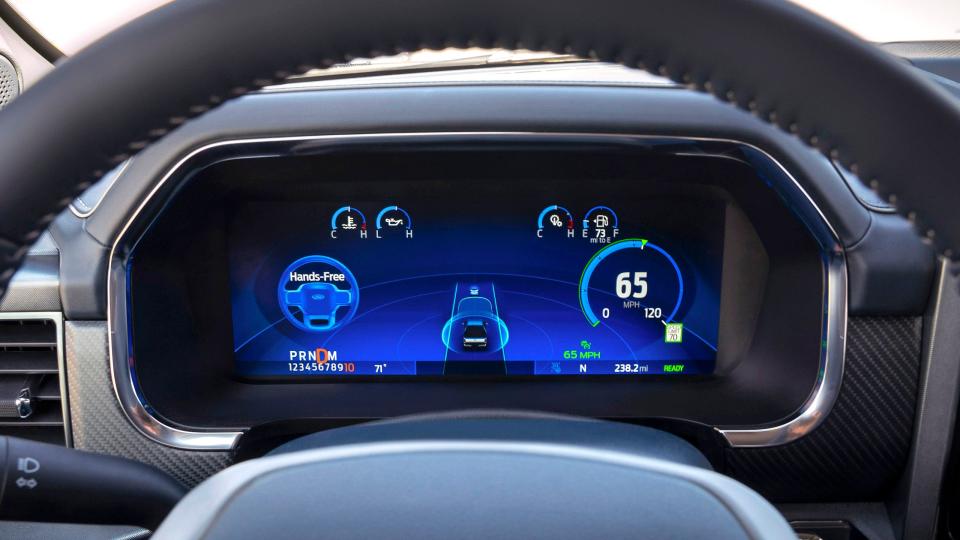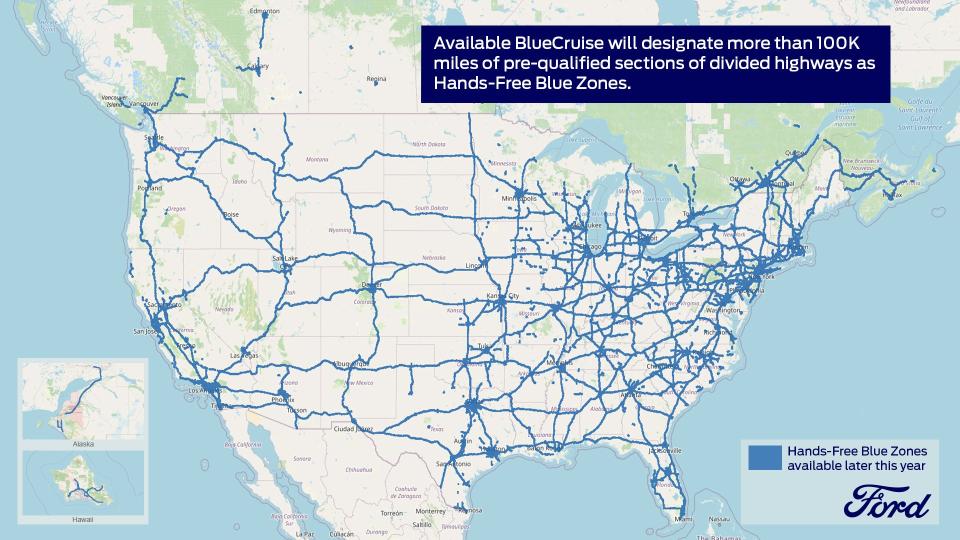Ford's BlueCruise Hands-Free Driving Assist Under Investigation After Fatal Crash

The National Transportation Safety Board has announced it will investigate a fatal crash that may have involved Ford's advanced hands-free driving assist technology, BlueCruise. It could be the first incident on record involving as capable a system, with potentially far-reaching consequences if the software is determined not to be up to snuff.
The crash was reported by KSAT to have occurred on February 24 in San Antonio, Texas. Around 9:50 p.m., the driver of a Ford Mustang Mach-E was reportedly traveling eastbound on Interstate 10 when they encountered a stationary Honda CR-V in the middle lane with its lights off. The Ford driver rear-ended the Honda, whose 56-year-old driver Jeffrey Allen Johnson of Austin was hospitalized. Johnson later died of his injuries.
On Friday, the NTSB declared it would investigate the incident due to the potential involvement of Ford BlueCruise, which the Mach-E is equipped with. BlueCruise is considered the second most-capable hands-free driving assist on the U.S. market, behind only GM's Super Cruise. It allows the driver to remove their hands from the steering wheel while driving on certain predetermined highways, though their attention must remain on the road.
This is enforced by a driver monitoring system that tracks the driver's eye movements, and disengages BlueCruise if it detects prolonged diversion. Driver monitoring is what sets this crash's circumstances apart from the series of Tesla Autopilot collisions with emergency vehicles, which were previously investigated by the NHTSA. The Administration determined Tesla's lax driver monitoring was a major cause for the crashes, as it allowed drivers to become distracted leading up to impact.

Stricter driver monitoring systems are supposed to prevent crashes of this kind though, as are other safety systems such as automatic emergency braking. It's unclear whether BlueCruise was active during the crash, which would make it the first known crash involving a system with hands-free capability. There's no telling what the consequences could be, or if they'd even be confined to Ford. That's assuming it wasn't another typical distracted driving death—something that shouldn't be normal in the first place, but that's another matter entirely.
Got a tip or question for the author? You can reach them here: james@thedrive.com

 Yahoo Autos
Yahoo Autos 